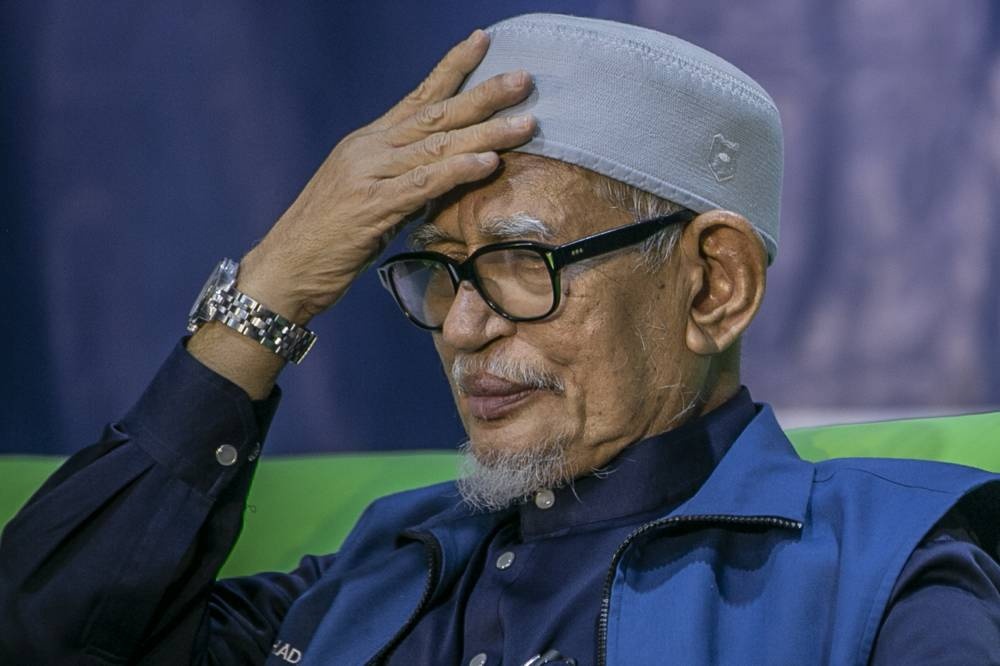
PAS fielding non-Muslims in Sabah poll : The bitter truth behind the hypocrisy of politics
12 Jul 2025 • 7:30 AM MYT

TheRealNehruism
Writer. Seeker. Teacher

Image credit: Malay Mail
There’s a common complaint in public discourse — that politicians today have no principles. The latest to seemingly prove this point is PAS, which has recently stated its intent to field non-Muslim candidates in the upcoming Sabah poll.
According to PAS's Sabah secretary Sahar Abdul Majid, such nominations align with the party’s long-standing “PAS for All” principle and are not new. He noted that the party had already fielded non-Muslim candidates in the 14th general election (GE14).
“Our non-Muslim supporters’ wing (DHPP) in the Sabah chapter is active, particularly among the Dusun and Chinese communities, with over 1,000 members to date,” he told FMT.
“In 2018, PAS fielded a non-Muslim candidate. This shows that Sabah DHPP plays an important role in garnering support from non-Muslim communities.”
Critics, however, have wasted no time in pouring cold water on PAS's intention. Among members of the public, the accusation that PAS is acting hypocritically is widespread.
But this complaint reveals more about us than it does about them.
Politics is not the arena for saints. It is the arena for winners. The game, at its core, is about power. And power doesn’t reward purity — it rewards adaptability.
As Clausewitz once observed in war: the longer you engage an enemy in the same way, the more they will adapt. In politics, the same logic applies. Once you find a winning tactic, your opponents will study it, counter it, and eventually copy it. Victory is never static.
Many are criticising PAS for fielding non-Muslim candidates in the Sabah state election, arguing that it goes against its decades of Islamic rhetoric. But this assumes that PAS is, first and foremost, a religious institution. It is not. PAS is a political party. And political parties, by definition, must make choices that improve their odds of winning.
PAS’s Islamic principles are most intact when PAS is not trying to win — or when it is already losing or ready to lose. In those moments, principles are safe because power is out of reach. But when victory is the goal, principles inevitably become negotiable. They must. Because in a competitive arena, a party that clings too tightly to fixed ideals is like a soldier refusing to adapt on the battlefield — they are almost certainly going to be the first to die.
If PAS were to win while maintaining strict Islamic orthodoxy, you can bet its opponents — UMNO, PH, even DAP — would begin shifting in that direction, not out of belief, but out of necessity. In a fierce enough contest, we shouldn’t even be surprised if DAP — often seen as PAS's polar opposite — begins adapting by out-Islamising PAS, if that’s what it takes to wrest back victory.
That’s politics for you: when your opponent wins with a strategy, you borrow it.
Non-Muslims may find PAS's move to field non-Muslims hypocritical. After all the negative rhetoric PAS has used about upholding Islam and portraying non-Muslims as a threat, it certainly feels two-faced to now rely on them to win elections. But perhaps that rhetoric was just that: rhetoric. PAS might have said those things not because it believed them, but because it thought that was what it needed to say to win.
This doesn’t mean PAS has no Islamic convictions. It means those convictions sit more comfortably with those who are not responsible for winning. The idealists and the grassroots may hold the principles. But those at the top? They are tasked with delivering results. And delivering results means bending — if not breaking — what the base wants to hear.
This is the great trick of political leadership: to convince your followers you share their values, even if you know that fully embracing those values would doom you to the same irrelevance they face. Your job is not to mirror their purity. Your job is to win for them — even if you have to lie to do it.
As Shakespeare wrote, “All the world’s a stage.” But no one knows the choreography better than a career politician.
And that’s why political winners are often alone. They may be surrounded by crowds, buoyed by movements, carried by slogans — but in their hearts, they are cut off from those they lead. The people see a champion, but the champion sees a battlefield. And the only people who truly understand what it means to win are their counterparts among their enemies — not their supporters.
So maybe the problem is not that politicians are unprincipled. Maybe the problem is that we expect them to be something they were never meant to be.
If we keep asking politicians to be more principled, we are dooming ourselves to a cycle of disappointment, because true principles often come with the cost of political failure — and politicians, by nature, are winners who are allergic to failure.
But if we change our expectations — if we accept that politics is a contest of strategy, not sanctity — then we can begin to judge politicians more clearly. We will stop expecting them to “stand for something,” and instead be ready to face the truth: that a politician will do anything to win.
Once we can see that, we will stop expecting politicians to act like noble heroes willing to sacrifice their own interests for the common good. We will begin to see them as what they truly are — hard-core competitors who will do whatever it takes to win. And then we can ask the real questions: How do they plan to win? And what does their victory mean for us?
We might not like the game. But we’ll stop pretending it’s something else.
And with that clarity, we might finally begin to deal with politicians not as saints or traitors, but as what they’ve always been: players in a brutal contest, doing what it takes to stay in the game.
No comments:
Post a Comment